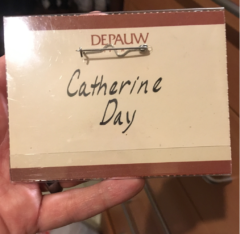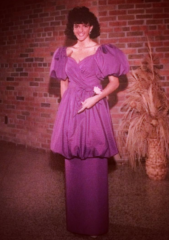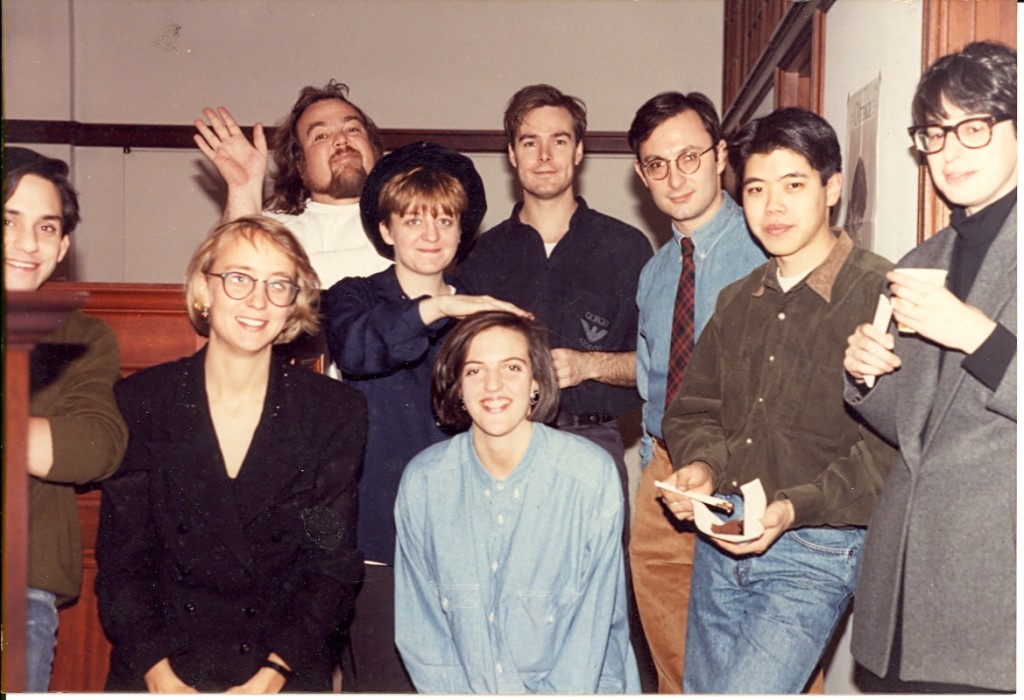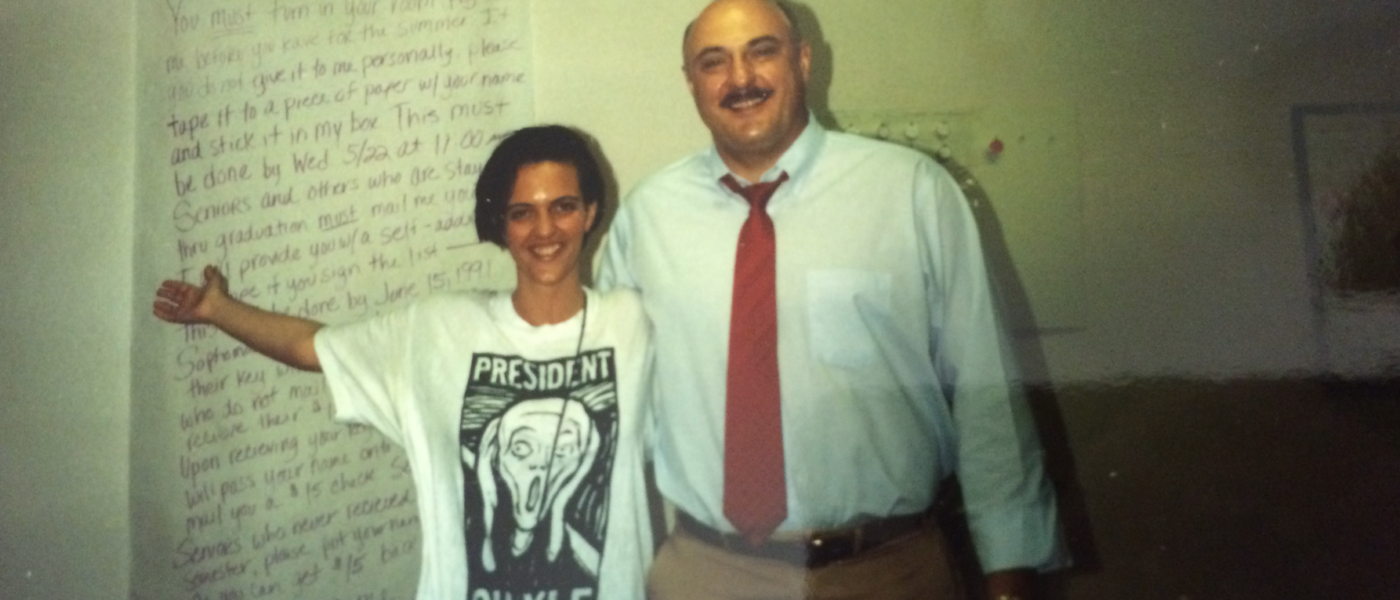A working-class girl goes to college
This essay in Vox, “The subtle ways colleges discriminate against poor students,” rang so many bells for me.
A little backstory
I’m from a long line of working-class people. My grandpa’s a fireman. My grandmas are homemakers—one didn’t graduate from high school until she was in her 60’s, the other never learned to drive.
My mom and dad are high school sweethearts who married when they were 20 and had me when they were 21. My dad works for the railroad, and my mom’s been a bank clerk, a homemaker, a babysitter, a secretary. (Later, she’ll get a degree in nursing, but that hasn’t happened yet.)
Understand: I’m a working-class girl from a small town who’s never met a professional. My dad’s friends are all cops and railroaders. My mom’s friends are all secretaries and homemakers.
How do you imagine the life you want when you’ve never even met anyone who lives anything approximating that life?

I’ll graduate from high school first in my class, but I’ll only apply to three colleges: Indiana University, Butler University, and DePauw University (which is where I’ll go).
Why only these schools?
Because I can’t imagine going to college farther than 2 or 3 hours from home. How will my parents get me there? Will any of our cars be able to make the drive? Will I fly home for Christmas? How can we possibly afford that?
Why these three colleges in particular?
IU because I’ve been there. And Butler and DePauw because that’s where my boyfriend (who goes to Wabash) and his mom (a teacher at my school) suggest that I apply.

I’m being groomed for something, but I’m not sure what.
Boyfriend’s Mom likes to take me shopping and show me things. This kind of purse. That kind of dress. She talks me into entering the Junior Miss pageant because she says it will help me get into a sorority in college.
A sorority? Really? Me?
I let myself be talked into this (and other things).
When I tell the guidance counselor where I’m applying, she nods her head approvingly. But she doesn’t encourage me to apply to more schools or to different ones.
I’ll never know if I could have gotten into, say, Princeton.
My alma mater is a great, great college, but it once had a reputation as a school that offered the M.R.S. degree, and years later, I’ll wonder if that’s why my teachers and guidance counselor thought I should go there: Cathy Day has a chance to marry an important kind of Midwestern fellow, and that’s pretty good for the granddaughter of a fireman and the daughter of a railroader.
If you want to understand the kind of girl I am in 1987, know this: I don’t have a way to articulate or even understand my heart’s desire—that I want to be someone important, not marry someone important.
Cultural Differences
When I arrive on campus, my parents are 40 years old, wearing t-shirts and tennis shoes. I look around at all the other kids and wonder why they brought their grandparents to move-in day—and why are the parents so dressed up?
 I go the restroom to wash my face before bed and pump some soap out of the dispensers. And the girls hold out these light green tubes and ask me why don’t I use Clinique, and I ask, “What’s Clinique?”
I go the restroom to wash my face before bed and pump some soap out of the dispensers. And the girls hold out these light green tubes and ask me why don’t I use Clinique, and I ask, “What’s Clinique?”
I’m in a car with friends. “What’s this on the radio?” NPR, they say. “What’s that?” I ask.
My favorite class is English, and sometimes I talk to the girls who sit in front of me. Then one night they walk into the Noble Romans where I wait tables. They look up at me and say, “You work? Here?” And they never talk to me in class again.
I can go on and on, all the comments I get (“Were you born in a barn?”), all the small indignities and slights I suffer. Someday they’ll call these “micro-aggressions,” but it’s 1987, 1988, 1989, and they aren’t using that word in Indiana yet.
I don’t know how to describe what it feels like to live in a place where every day I’m reminded that people like my family have always worked for—not with—the families of my classmates.
Experiential Learning
But I’m stubborn. I don’t transfer. I don’t even think about transferring. I don’t even understand that transferring is an option, that I might actually be happier at a different kind of school. I just keep trying because I’m a very determined girl and I assume this is the kind of crap you have to put up with in order to get somewhere in life.
Everyone’s heading to the Career Center. They’re going to live with their parents and do an unpaid internship for a family friend.
Me? I’m waiting tables, I guess. I can’t afford to work for free.
Then somebody tells me about this internship stipend that I can apply for. I can go out and get a cool unpaid internship and this magical fund will pay me what I’d make waiting tables! How is this possible? So I spend one summer working for a newspaper and another editing a scholarly monograph—experiences I can’t afford otherwise.
See, at the time, I think I want to be a Rolling Stone reporter.
Why do I want this?
Because I love Rolling Stone, and so surely that must mean I’m supposed to work there.
Sigh.
But I’m so determined, see, that I almost achieve this!

My senior year, I intern at Andy Warhol’s Interview magazine (not Rolling Stone, but close) thanks to a domestic internship program, and wow, I realize that I don’t want to work in magazine journalism at all, so I apply to graduate school in creative writing, and become a different kind of writer.
Later, I will thank God for these opportunities—the internship stipend and the domestic internship program in New York City—because I have no financial safety net. I don’t have the time nor the money to “find out what I really want to do.” I get to try on different careers while I’m still in college to see what fits.
This saves me years. This saves me money that I don’t have anyway and keeps me from taking on needless debt.
I also thank God that I receive this scholarship, which pays all of my tuition. My parents take on debt to pay for my room and board, and I graduate from college with no debt. None. Not a dime.
If I hadn’t gone to DePauw, as hard as it was sometimes, I might not have gotten those opportunities. I might not have been able to afford graduate school or the 12 years it took me write my first book.
If I hadn’t gone to DePauw, I wouldn’t have met the man I’d marry 17 years later, a Wabash gentleman (just a different one), the son of a doctor. Only I’m the breadwinner, and he’s the breadmaker.
(This post is getting long, and I haven’t gotten to what I want to say about what all of this–my upbringing, my college experience–has to do with my recent interest in professionalization giving students “stars to steer by,” so I’ll write about that another time…thanks for reading.)
Higher Ed

Great post — write more!
Daughter of a truck driver and factory worker. Applied to one school. No one I knew had gone to college, other than my high school teachers. And no one helped me figure it out. Looking forward to what else you have to say about the topic.
Amazing, Cathy! Thanks for this. These are the things that make you a wonderful teacher in the college context–you know how to relate to an important population there. I miss you in Pittsburgh!
Great post, Cathy! You may remember me from DePauw (and our relatives). Your story strongly resonated with me. I shared many of the same feelings and experiences growing up in small town IN and finding myself in the midst of the Ivy League of the Midwest.
My mom somehow found your blog and forwarded it to me. It looks like you’re doing well. Look me up sometime!
I will Lauri!!